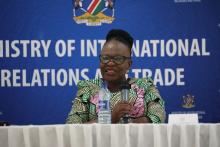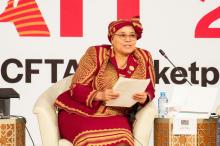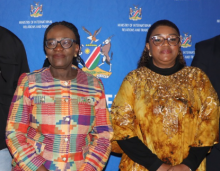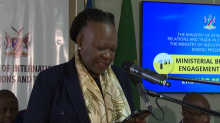Ashipala-Musavyi pushes Namibia to boost AfCFTA-ready exports
Breadcrumb
The Minister of International Relations and Trade, Selma Ashipala-Musavyi, has urged Namibia to identify products and sectors where it holds a competitive advantage for export growth as the country explores the opportunities within the African Continental Free Trade Area framework.













